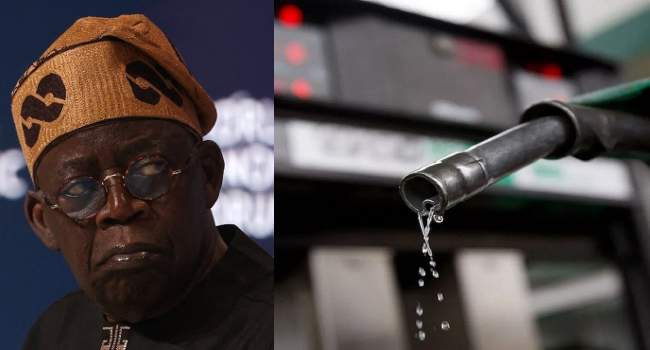Nigeria’s Trade Union Congress Calls for Special Forex Rate to Reduce Fuel Prices
The Trade Union Congress (TUC) in Nigeria has urged the Central Bank of Nigeria (CBN) and the Nigeria Customs Service (NCS) to grant the Nigerian National Petroleum Company Limited (NNPCL) a special foreign exchange rate to help reduce fuel prices. The TUC claims that a special rate of around ₦1000/$, instead of the official rate of ₦1,600/$, would significantly cut the cost of petrol importation and fuel prices, which currently range from over ₦900 to over ₦600 depending on the region.
According to TUC President Festus Osifo, the devaluation of the naira by the current administration is the main culprit behind Nigeria’s fuel price woes, rather than the removal of petrol subsidy in May 2023 by President Bola Tinubu. Osifo stated on Channels Television’s Politics Today programme on Monday that petrol would sell for around ₦350 if the naira had not been devalued along with the subsidy removal, which would have resulted in a rate of around ₦700/$1, compared to the current rate of over ₦1,600/$1.
Osifo believes that the NNPCL should receive a special forex rate to eliminate the need for petrol subsidy, citing the example of Dangote Refinery, which was given a special rate to facilitate its operations. He argues that this approach would not only benefit the NNPCL but also the wider economy, as it would lead to lower fuel prices and reduced hardship for Nigerians.
If the government fails to respond to the TUC’s demands, the union boss warned that the consequences will be severe, including job losses and companies folding up. Industry groups such as the Nigerian Association of Chambers of Commerce, Industry, Mines and Agriculture (NACCIMA), the Lagos Chamber of Commerce and Industry (LCCI), and Nigerian Employers Consultative Association (NECA) have also warned of dire consequences if fuel prices are not brought under control.
The TUC has pledged to hold a meeting with its organs to decide on the next course of action if the government does not revert petrol prices to around ₦600. The union’s demand for a special forex rate for the NNPCL has reignited the debate on Nigeria’s fuel subsidy regime, with many Nigerians eagerly awaiting a response from the government.
